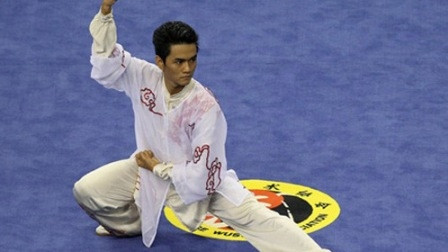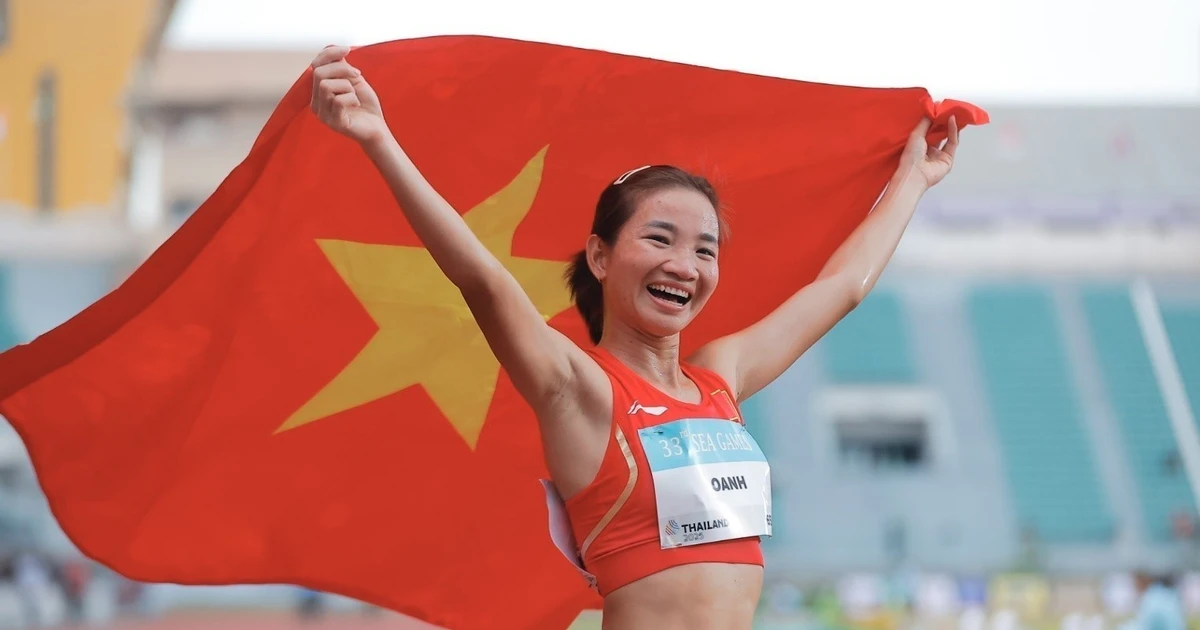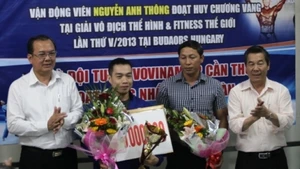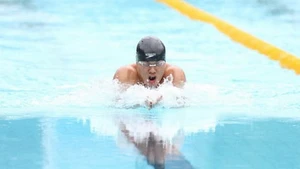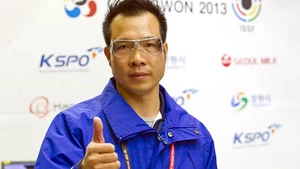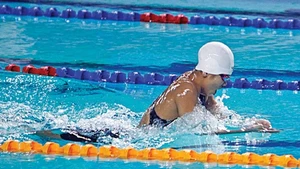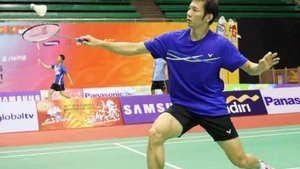After beginning his wushu training at the age of 11, Tung quickly displayed an aptitude for this form of martial art, and has since become a talented fighter in the national wushu team following four years of training with the Hanoi team.
He amazed coaches and teammates by taking a silver medal at his first international appearance, the 2005 World Youth Wushu Championships in Myanmar, before earning another silver at his regional debut, the 25th SEA Games in 2009.
The year 2011 marked a shining milestone in Tung’s wushu career as he was crowned the men’s Taolu Taijiquan champion with a 9.68-point performance at the 11th World Wushu Championships in Ankara, Turkey. He won by the narrowest of margins, with advantages of 0.02 and 0.1 points over the silver medalist Yoshihiro Sekiya of Japan and the bronze medalist Lee Jae-Hyung from the Republic of Korea.
At the 2013 World Games in Colombia this August, Tung continued to excel in Taijiquan, his favourite discipline, taking home another gold medal after defeating two strong rivals from Malaysia and China with 19.43 points.
Many wushu events, some of which are Vietnam's strengths, have unfortunately been excluded from the competitive programme of this year's SEA Games. For that reason, the General Department of Sports and Physical Training has assigned the Vietnam national wushu team the modest target of winning from two to three gold medals at the region’s biggest sporting event. Tung is one of the martial artists who must shoulder the responsibility of living up to that goal.
Despite his underwhelming performance at the 12th World Wushu Championships in Malaysia last month, it is hoped that Tung will quickly recover his top form at next month’s SEA Games and do well in both of his favourite disciplines, Taolu Taijiquan and Taiji Sword, to secure the all-around gold medal for Vietnam.
Vietnamese wushu artists brought home seven gold medals at the 25th SEA Games in Laos in 2009 and four gold medals at the 26th SEA Games in Indonesia.
